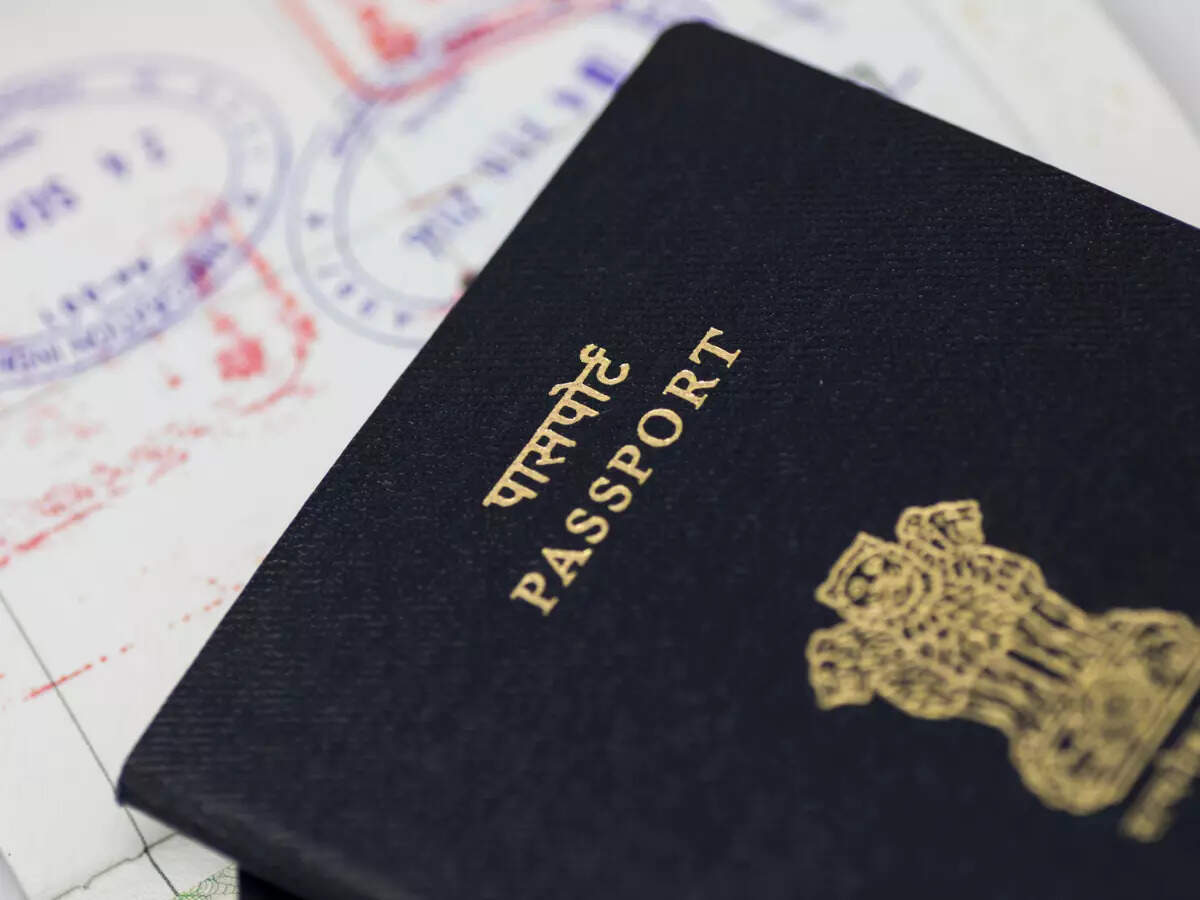
The global hospitality industry has undergone a tremendous shift towards growing and operating sustainability. Responsible tourism is taking centre stage, with travellers increasingly seeking eco-friendly accommodations and experiences that have a positive impact on the planet and local communities. As the hospitality industry acknowledges the urgent need to address environmental and social challenges, sustainable tourism has become a critical component of our journey towards a better future.
The evolution of travellers: Driving change through conscious choices
Travellers have evolved into conscious consumers who prioritise sustainability in their choices. The modern globetrotter seeks to align their travel experiences with eco-friendly values, from reducing carbon footprints to preserving cultural heritage. A global study commissioned by IHG Hotels & Resorts revealed that 83 per cent of consumers noted the importance of choosing a hotel brand that operates responsibly, with guests willing to spend on average 31 per cent more on accommodation that meets this need. With the growing appetite for more eco-friendly stays, search engines and OTAs are now highlighting a hotel’s credentials, with Google labelling hotels meeting its sustainability criteria as Eco-certified, while Booking.com applies its Travel Sustainable badge.
Our efforts to create a sustainable future
The global hospitality industry has been actively responding to the changing consumer mindset for sustainable tourism by spearheading various initiatives and practices from energy-efficient technologies to waste reduction initiatives. In 2019, IHG Hotels & Resorts became the first hotel company to commit to replacing bathroom miniatures with full-size amenities across all brands – and we took this further in 2021 with a commitment to eliminate single-use items or move to reusable or recyclable alternatives across the guest stay by 2030.
As one of the world’s leading hotel companies, IHG Hotels & Resorts embraces the responsibility and opportunity to make a positive difference and help shape the future of responsible travel. At the core of our culture and business is to operate responsibly and sustainably. Our dedication to making a positive change led us to launch ‘Journey to Tomorrow’ in 2021, a 10-year action plan of clear commitments to drive change for our people, communities and planet, aligned with our purpose of ‘True Hospitality for Good’ and the UN Sustainable Development Goals.
To help our hotels achieve our sustainability goals, we deploy IHG Green Engage, an online environmental management platform. The platform is a global standard and helps our properties across the globe measure, report and manage their use of energy, water and manage waste, while simultaneously minimising their utility costs and environmental impact. More than 200 Green Solutions are available to help our hotels make greener choices and we recognize their progress through four levels of certification.IHG is also implementing initiatives such as introducing bulk amenities as a part of our goal to eliminate single-use plastic items and introducing AI-based technology to reduce food waste, and collaborating with local stakeholders to tackle water sustainability issues in areas of greatest risk. Additionally, we continue to work with the hotels to reduce carbon emissions in line with climate science. There is a big focus on improving energy efficiency across our properties by introducing an Energy Reduction Metric in 2022, which remains a key area of focus this year as well.
Future outlook: Advancing sustainable and responsible tourism
Embracing sustainability is not just a trend but a necessary step towards a resilient and thriving hospitality sector. We should envision a future where travelers are drawn to India not only for its rich cultural experiences but also for the authentic and eco-friendly adventures it offers. To achieve this vision, we must work collectively and prioritise sustainability in all aspects of our operations. Government bodies, hoteliers, suppliers, and travellers must work hand in hand to create a more sustainable and responsible tourism ecosystem.
The rise of sustainable and responsible tourism has emerged as a catalyst for change in the hospitality industry, ushering in a new era of conscientious travel. As travellers increasingly prioritize eco-friendly experiences, it is incumbent upon us, as industry leaders, to respond with an unwavering commitment to sustainability. Through collective collaboration, we can forge a future where travel gives a new impetus to positive impact, leaving behind a legacy of conservation, cultural preservation, and community advancement.
The author is the Managing Director – South West Asia, IHG Hotels & Resorts, leading global hospitality company.
DISCLAIMER: The views expressed are solely of the author and ETTravelWorld.com does not necessarily subscribe to it. ETTravelWorld.com shall not be responsible for any damage caused to any person/organisation directly or indirectly.
[ad_2]
Source link

The global hospitality industry has undergone a tremendous shift towards growing and operating sustainability. Responsible tourism is taking centre stage, with travellers increasingly seeking eco-friendly accommodations and experiences that have a positive impact on the planet and local communities. As the hospitality industry acknowledges the urgent need to address environmental and social challenges, sustainable tourism has become a critical component of our journey towards a better future.
The evolution of travellers: Driving change through conscious choices
Travellers have evolved into conscious consumers who prioritise sustainability in their choices. The modern globetrotter seeks to align their travel experiences with eco-friendly values, from reducing carbon footprints to preserving cultural heritage. A global study commissioned by IHG Hotels & Resorts revealed that 83 per cent of consumers noted the importance of choosing a hotel brand that operates responsibly, with guests willing to spend on average 31 per cent more on accommodation that meets this need. With the growing appetite for more eco-friendly stays, search engines and OTAs are now highlighting a hotel’s credentials, with Google labelling hotels meeting its sustainability criteria as Eco-certified, while Booking.com applies its Travel Sustainable badge.
Our efforts to create a sustainable future
The global hospitality industry has been actively responding to the changing consumer mindset for sustainable tourism by spearheading various initiatives and practices from energy-efficient technologies to waste reduction initiatives. In 2019, IHG Hotels & Resorts became the first hotel company to commit to replacing bathroom miniatures with full-size amenities across all brands – and we took this further in 2021 with a commitment to eliminate single-use items or move to reusable or recyclable alternatives across the guest stay by 2030.
As one of the world’s leading hotel companies, IHG Hotels & Resorts embraces the responsibility and opportunity to make a positive difference and help shape the future of responsible travel. At the core of our culture and business is to operate responsibly and sustainably. Our dedication to making a positive change led us to launch ‘Journey to Tomorrow’ in 2021, a 10-year action plan of clear commitments to drive change for our people, communities and planet, aligned with our purpose of ‘True Hospitality for Good’ and the UN Sustainable Development Goals.
To help our hotels achieve our sustainability goals, we deploy IHG Green Engage, an online environmental management platform. The platform is a global standard and helps our properties across the globe measure, report and manage their use of energy, water and manage waste, while simultaneously minimising their utility costs and environmental impact. More than 200 Green Solutions are available to help our hotels make greener choices and we recognize their progress through four levels of certification.IHG is also implementing initiatives such as introducing bulk amenities as a part of our goal to eliminate single-use plastic items and introducing AI-based technology to reduce food waste, and collaborating with local stakeholders to tackle water sustainability issues in areas of greatest risk. Additionally, we continue to work with the hotels to reduce carbon emissions in line with climate science. There is a big focus on improving energy efficiency across our properties by introducing an Energy Reduction Metric in 2022, which remains a key area of focus this year as well.
Future outlook: Advancing sustainable and responsible tourism
Embracing sustainability is not just a trend but a necessary step towards a resilient and thriving hospitality sector. We should envision a future where travelers are drawn to India not only for its rich cultural experiences but also for the authentic and eco-friendly adventures it offers. To achieve this vision, we must work collectively and prioritise sustainability in all aspects of our operations. Government bodies, hoteliers, suppliers, and travellers must work hand in hand to create a more sustainable and responsible tourism ecosystem.
The rise of sustainable and responsible tourism has emerged as a catalyst for change in the hospitality industry, ushering in a new era of conscientious travel. As travellers increasingly prioritize eco-friendly experiences, it is incumbent upon us, as industry leaders, to respond with an unwavering commitment to sustainability. Through collective collaboration, we can forge a future where travel gives a new impetus to positive impact, leaving behind a legacy of conservation, cultural preservation, and community advancement.
The author is the Managing Director – South West Asia, IHG Hotels & Resorts, leading global hospitality company.
DISCLAIMER: The views expressed are solely of the author and ETTravelWorld.com does not necessarily subscribe to it. ETTravelWorld.com shall not be responsible for any damage caused to any person/organisation directly or indirectly.
[ad_2]
Source link

In a world where technological advancements are reshaping every facet of our lives, the conventional notion of passports is undergoing a remarkable transformation. The infusion of blockchain technology into passport systems holds the potential to elevate security measures, optimise operational efficiency, and enhance the overall travel experience for both individuals and governing bodies.
Three-fold challenges in the traditional passport system
These challenges underscore the urgent need for a more innovative and efficient approach to identity verification and travel documentation.
Security vulnerabilities: Traditional passports, reliant on centralised databases and physical stamps, are susceptible to counterfeit and fraudulent activities. Criminal elements can exploit these vulnerabilities, compromising the integrity of the passport system and jeopardising global security.
Cumbersome verification processes: Verification of traditional passports often involves manual checks and complex bureaucratic procedures. This leads to long waiting times at border crossings and airport checkpoints, causing inconvenience to travellers and straining border control resources.
Privacy concerns: Centralised storage of sensitive personal information in traditional passports raises valid privacy concerns. Individuals may feel uneasy about their data being concentrated in one centralised authority, increasing the risk of unauthorised access or misuse.
How Blockchain Technology can save the day
Blockchain technology offers a compelling solution to address the aforementioned challenges in the traditional passport system. With its unique attributes of decentralisation, immutability, and cryptographic security, blockchain has the potential to transform the way we handle identity verification and travel documentation.
By utilising blockchain for storing passport data, we create an indelible record, virtually eliminating security vulnerabilities and ensuring tamper-proof information. Smart contracts automate verification processes, slashing waiting times and significantly enhancing efficiency. The decentralised identity management feature of blockchain empowers individuals, addressing privacy concerns and providing control over personal data. Moreover, embracing this digital solution reduces paper waste, aligning with sustainability goals, and making blockchain technology the beacon of hope for a redefined, secure, and streamlined travel experience.Unparalleled security through Blockchain
Harnessing the cryptographic capabilities inherent to the blockchain, personal and biometric data stored in these passports is rendered tamper-proof and exceptionally secure. The decentralised nature of blockchain ensures that any unauthorised alterations or access attempts are virtually futile, creating an impregnable shield around sensitive identity information.
According to a report by Accenture, identity fraud costs the global economy over USD 5.2 trillion annually. Blockchain’s cryptographic algorithms can significantly mitigate this threat, ensuring that travellers can embark on their journeys with confidence, knowing their identity data is safeguarded.
Streamlining verifications for expedited travel
Current passport verification processes often present travellers with cumbersome and time-consuming procedures, leading to avoidable delays and frustrations. The integration of blockchain-based passports promises to streamline this experience by enabling instant verification of identities and travel permissions.
Statistics indicate that travellers spend an average of 1-2 hours waiting in immigration lines during international travel. Implementing blockchain-based passports can potentially reduce this time by up to 60%, enhancing the overall travel experience and positively impacting the travel industry.
Empowering individuals with decentralised identity management
Blockchain-based passports empower individuals to have greater control over their identities and personal data. Travellers can selectively share specific details, enhancing privacy and reducing the risk of identity theft or misuse. This innovative approach aligns with the growing demand for decentralised identity management.
A study by IBM found that 74% of consumers would prefer having the ability to manage their online identities. Blockchain passports cater to this demand, offering a practical solution that not only meets security requirements but also aligns with evolving consumer preferences.
Enhancing inter-agency collaboration
Blockchain facilitates seamless collaboration between different government agencies involved in the passport issuance and verification processes. The distributed ledger allows for real-time updates and sharing of information across authorised entities. This not only enhances security but also streamlines administrative operations, resulting in a more efficient and agile system.
According to a McKinsey report, efficient inter-agency collaboration could reduce operational costs in public administration by 20-30%4. Blockchain-based passports can serve as a catalyst for achieving these efficiency gains, ultimately benefiting both governments and travellers.
Embracing a sustainable future
The shift towards blockchain-based passports is not only technologically progressive but also environmentally conscious. By digitising passport data and minimising the need for physical documents, we contribute to reducing paper waste and the associated environmental footprint. This aligns with the global endeavour to promote sustainability in all aspects of life.
To conclude, Blockchain-based passports represent a paradigm shift in the world of travel. They promise enhanced security, streamlined processes, decentralised identity management, efficient collaboration, and a sustainable future.
As governments and travellers increasingly recognise these advantages, it’s only a matter of time before blockchain-based passports become the new global standard, revolutionising travel as we know it. This technology doesn’t just address current issues; it also aligns with global sustainability efforts by reducing paper waste.
The author is Co-Founder, Spydra Technologies.
DISCLAIMER: The views expressed are solely of the author and ETTravelWorld.com does not necessarily subscribe to it. ETTravelWorld.com shall not be responsible for any damage caused to any person/organisation directly or indirectly.
[ad_2]
Source link

Travellers encountered many weather surprises this summer, from wildfires in Europe to knee-deep mud at Burning Man. Indeed, it was the hottest summer on record around the globe, according to the European Union’s Copernicus Climate Change Service.
“The dog days of summer are not just barking, they are biting,” said U.N. Secretary-General Antonio Guterres in a prepared statement published Sept. 6. “Our planet has just endured a season of simmering – the hottest summer on record. Climate breakdown has begun.”
Shifting weather patterns are raising questions about where, when, how and whether tourists will travel.
For example, does it still make sense to visit Italy in July, despite high temperatures, large crowds and minimal air conditioning? Or should “peak” travel season move to the more hospitable autumn or spring months?
Tourism destinations are starting to take note – and get worried – about the toll climate change could take on this enormous industry.
HOT DESTINATIONS
Escaping to the Spanish coast for the summer used to sound like a dream. This year it turned into more of a nightmare for Mediterranean Travellers. The coastal city of Valencia, Spain, saw temperatures reach 116 degrees Fahrenheit in August, a record high. That came amid Spain’s limits on air conditioning use in public spaces, leaving tourists to sweat it out.
These trends are only likely to get worse, driving Travellers away from hot beachside destinations in Europe, according to a July report from the European Commission’s Joint Research Centre. Southern coastal regions such as Greece, Italy and Spain are expected to see a drop in tourism if temperatures continue to increase.
On the other hand, colder destinations in Northern Europe could actually see more vacationers. Denmark, France and the United Kingdom could receive more tourists because of higher temperatures, according to the report. Greenland, which is mostly covered with ice, is expecting to see far more tourists in the coming decades, with a new airport set to open in 2024.
Closer to home, many popular destinations have already been affected by rising temperatures. The namesake glaciers of Glacier National Park have lost an average of 40 per cent of their size between 1966 and 2015, according to the National Park Service. Florida’s coral reefs were bleaching and dying under the stress of record ocean temperatures this summer.
PEAK TRAVEL SEASONS
Summers are for vacations – that’s a truth so universally acknowledged as to be almost self-evident. Families travel while kids are out of school, and office workers flee to vacation in ideal weather.
Yet, as summers continue to warm, these vacations could give way to “shoulder season” alternatives in spring and autumn months. In other words, tourists could change when (rather than where) they visit.
Indeed, this change may already be taking place. Short-term rental analytics platform AirDNA reported that occupancy rates at mountain and lake destinations in October 2022 were nearly as high as 2019’s peak occupancy (in July), bucking the typical sharp downward trend after the summer.
Cherry blossoms in Japan are flowering 11 days earlier than they used to, according to a 2022 report in the journal Environmental Research Letters. (21) This has shifted the tourist-attracting cherry blossom festival from April into March.
Changes in flexible working conditions, as well as pent-up demand from the pandemic, could also be contributing to the rise of shoulder season travel. Yet as more Travellers take stock of changing weather patterns, they will likely adjust their schedules to avoid stifling summer heat. The European Commission’s Joint Research Centre estimates that southern coastal regions could lose as much as 10 per cent of tourists during peak summer months.
A CLIMATE CATCH-22
A changing climate will affect how and when tourists travel. Yet this causation runs the other way, as well: Tourism is itself affecting the climate.
Tourism accounts for about 8 per cent of global emissions, according to some estimates. A single trans-Atlantic flight would require an acre of forest to absorb its carbon emissions. Although the airline industry is racing to reduce emissions, it lags far behind other major emitters, such as passenger vehicles, in making meaningful change.
What does that mean for airline passengers? Either they must begin reducing the number of miles they fly, or governments may begin imposing restrictions in order to reduce emissions.
For example, France has already banned short-haul domestic flights for routes already serviced by rail. That is, if Travellers can get there in less than two and a half hours on a train, they can no longer fly. Similar bans could appear throughout Europe as countries get more aggressive on combating climate change.
Some advocates have even proposed a frequent flyer tax that scales with the number of flights a Traveller takes – an effort to curb these large carbon footprints.
Whether these or similar measures take off in coming years or not, this much is clear: The days of unfettered jet-setting could be coming to an end.
[ad_2]
Source link






